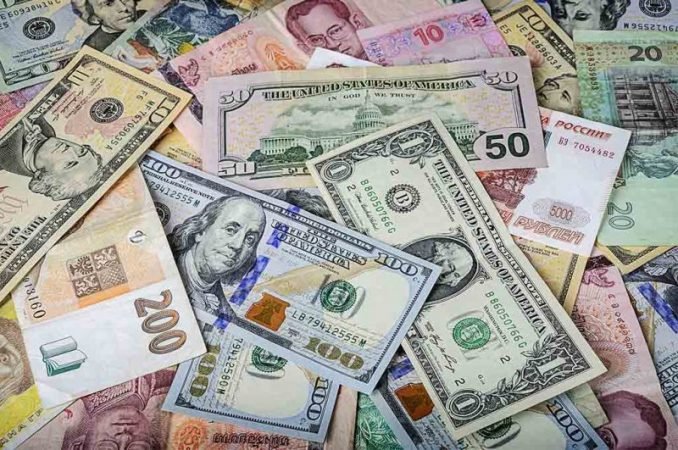‘Universal Currency’ – Is the idea actually a viable one?

In the era of economically and financially integrated economies, have you ever conjectured why the world does not embrace a uniform currency? Moreover, watching the impractical exchange rates banks impose on a monetary exchange or money transfer abroad; most people must have pondered why not obliterate diverse currencies and just get glued to a single global currency. Precisely, wouldn’t a single global currency and a global central bank make more logic than our unclear, ineffective, and outmoded pool of national currencies and monetary policies? The idea of ‘universal currency’ is certainly not a novel one and has been widely plugged by economics titans like John Maynard Keynes much before the early 20th century. Since then, there has been rising support for a common currency. Here, the question arises: Is this idea really a good one?
The notion of a universal currency is somewhere heightened by the perceived success of the euro, something that can lead to improved global trade as it can become almost analogous to how local commercial transactions are carried out. Proponents contend that there would be no longer the risk of currency crises like Zimbabwe’s, transaction costs related to trading currencies will be eliminated, currency risk will be done away with thereby benefitting foreign investors, the need of maintaining foreign exchange reserves will be eliminated, etc. Indeed, it will pave the way to a global level playing field, as economies like China could no longer exploit currency exchange as a way to make their goods cheaper in the global marketplace. A universal currency’s value will be fixed for everyone; hence it will be sheltered from any adverse events transpiring in the local political and economic environment. Pricing would be more explicit, and consumers would be able to identify anomalies and shop for the finest deals. Also, by abolishing foreign-exchange transactions and hedging costs, a universal currency would strengthen impeded world trade and enhance the efficacy of universal capital allocation.
However, the adoption of a single global currency is neither likely nor desirable in the near future owing to the massive disparities in international economic and political structures. A single universal currency suggests a single universal interest rate, and a single universal interest rate advocates a uniform global monetary policy setting. It thus indicates a loss of independent monetary policy required to normalize national economies. Nonetheless, two nations that share an identical currency don’t largely require identical monetary policy settings. The eurozone in the 2000s is a famous instance in this regard: euro interest rates were concurrently too elevated for Germany and far too dwindling for Greece, which furthered the adversity that has been unrolling since mid-2011. In this specific case, in the presence of a single universal currency, the Germany-Greece imbalance would have played out simultaneously in every economy all over the globe, worsening the usual economic business cycle and affecting every nook and corner of the world. Even in case of the gold standard, wherein most currencies were pegged to gold – making gold a “universal currency”- it possibly impaired the normal business cycles in a majority of the big nations during that time. Because the universe is not an “optimum currency area”, primarily because it does not have labour mobility. Subjecting all nations to a single monetary policy would possibly result in policy decisions which would benefit some nations at the cost of others. So, distinct monetary policies are required in different parts of the universe.
There are numerous practical issues surrounding the concept of ‘universal currency’. A nation in debt shall “no longer” be able to devalue its own currency, thus shall not be able to make its manufactured goods more attractive to consumers from other economies, though developing nations will be in a win-win situation. There will be a serious concern regarding the printing of the currency, who would do that and why we should be at that nation’s patronage? Further, labor mobility is commonly low worldwide, hence it will again induce inflation, unemployment, recession, etc. The sovereignty of nations will be gone, essentially which is bad. Europe is struggling with the Euro, isn’t it?

The Way Forward
Though globalization and technology have shrunk the dimensions of the universe and the time for a global central bank has approached. But currently, it seems that implementing a universal currency would be extremely unviable. Maybe social and cultural variations play a much larger role in our lives than we think. USSR made an attempt of removing these differences, but where is the USSR today? The reasons why this scheme still has not been implemented until today are indeed political and social, not economical. The major hindrances include the problem of national identity and those of political discords.
Undeniably, the established theory suggests that a blended approach is more appropriate. In some areas, such as Europe, adopting a uniform currency may lead to substantial benefits. However, for other areas, trying to impose a single currency forcefully would probably do more damage than good.
Moreover, the fact that a universal currency would fail dramatically (irrespective of how compelling the economic justification for it may be) does not liberate policymakers of their duty to address the challenges thrown up by a disintegrated global monetary structure. And that signifies reinforcing global multilateral organizations. Further, a more globalized domain entails an assurance from all players to warrant the efficient flow of resources from all over the globe.
Hence, for the current international monetary system, the ideal – an unfeasible universal currency – should not become the enemy of the good. It is certainly viable to upgrade our policy tools and boost up universal growth within our existing avenues.



















